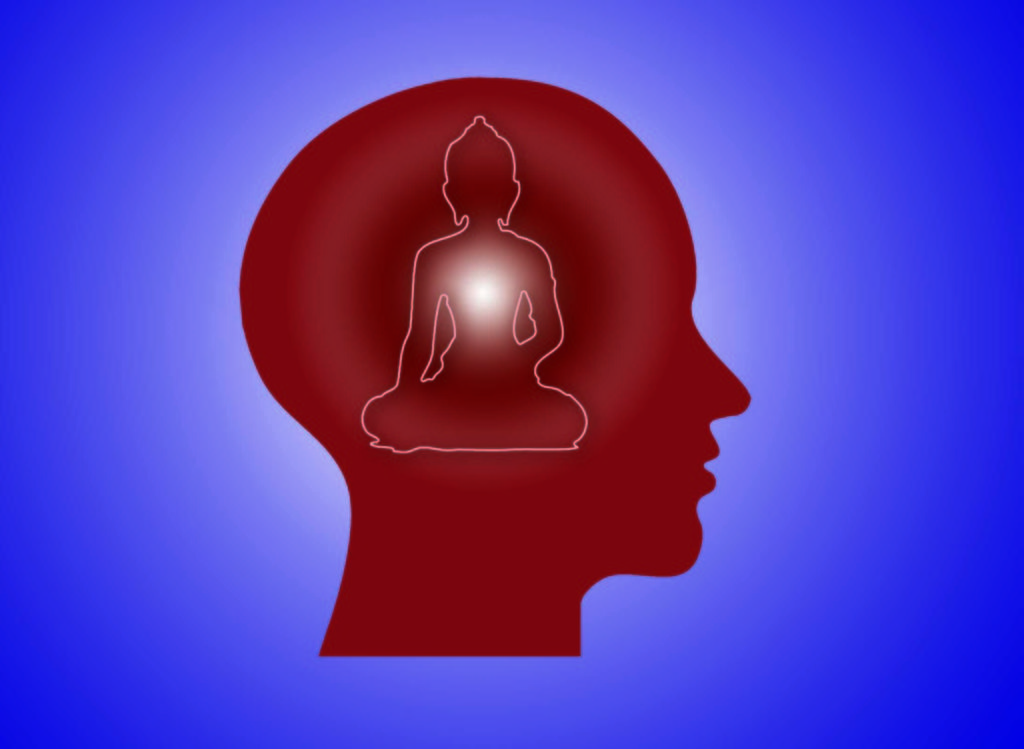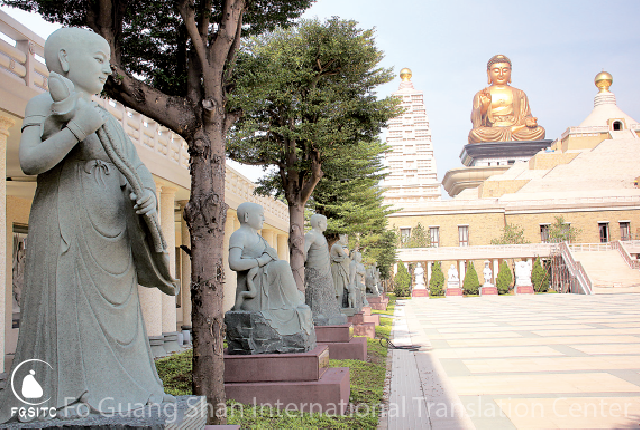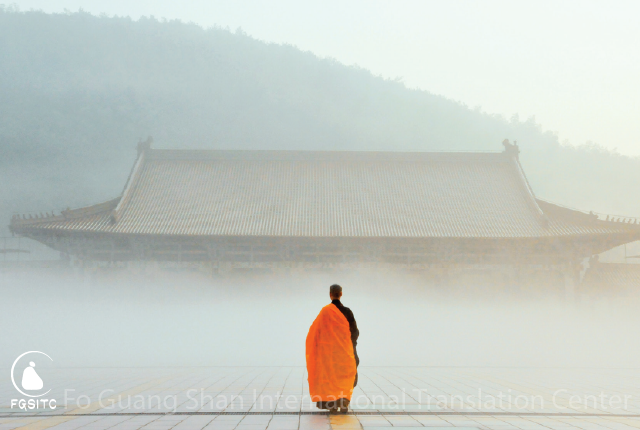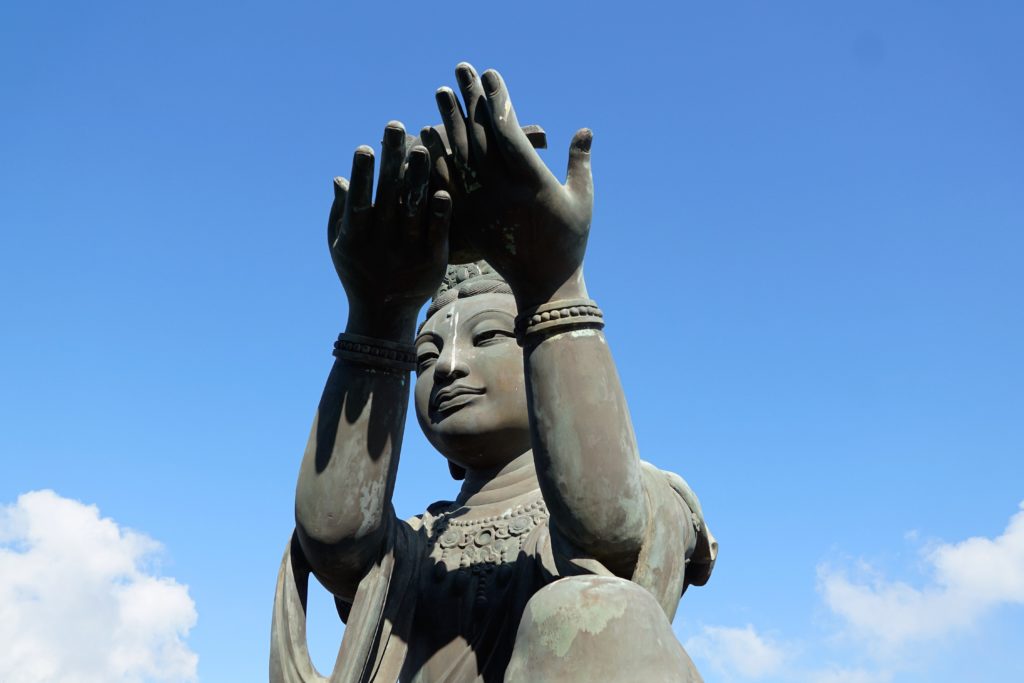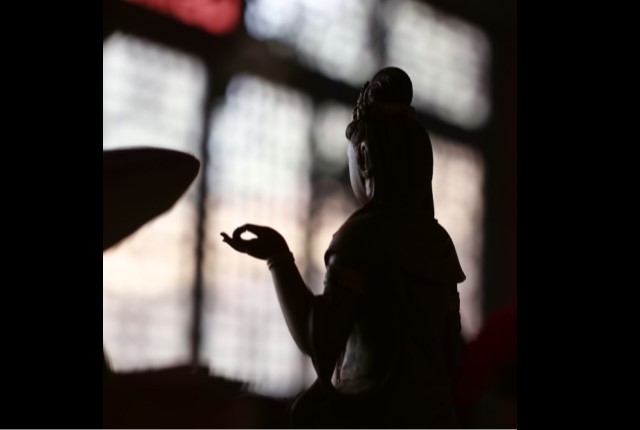
Greed causes sadness;
Greed causes fear.
If there is no greed,
How can there be sadness and fear?
— Dharmapada
The Causes of Greed
Greed is a basic disease of all sentient beings. In our realm, the desire realm (kamadhatu), the force and effects of greed can be felt especially strongly. Greed is based on ignorance and cannot function without it. The fundamental ignorance that enables greed to function is the belief in a self that exists separately and independently from other sentient beings. This belief leads to nothing but trouble and it can only lead to trouble. Once we believe we are separate, we begin to have desires, attachments and the false certainty that we can obtain advantages for ourselves without including the well-being of others.
Greed springs from ignorance, and as it rears its ugly head, it causes more ignorance; the passions of greed and its myriad attachments always obscure higher awareness and they always weaken the moral sense. Greed has many names and many masks. Sometimes we call greed “wanting,” sometimes we call it “love,” sometimes we call it “needing.”
Greed is one of the six basic defilements mentioned in Buddhist sutras. The six klesha are: greed, anger, ignorance, pride, doubt and false views.
The Yogacarabhumi Sastra mentions the ten troubles (anusaya). The ten anusaya comprise a more detailed analysis of the forces that cause suffering among sentient beings. The ten anusaya are: greed, anger, pride, ignorance, doubt, identification with the body, nihilism or eternalism, disbelief in the laws of karma, self-righteousness, and excessive asceticism.
The Yogacarabhumi Sastra says that greed arises from the five skandha. A human being is made of five skandha, or “aggregates.” These skandha are: form, feeling, perception, mental formation, and consciousness. The Yogacarabhumi Sastra says that ten conditions lead to greed. These conditions are: grasping; sight; not having; having; evil behavior; wanting to have children; friends and relatives; the necessities of life; desire for eternal life; the desire not to have eternal life. Most of these conditions are normal aspects of our world. The Yogacarabhumi Sastra is not saying that these aspects should be avoided or despised; it is saying that these aspects or conditions can lead to greed if we become excessive in our attachments to them. Of course evil behavior need not be a normal aspect of life in this world.
We can begin analyzing the roots of greed by working backwards through the five skandha.
First we become conscious of what greed is and how it affects us, then we begin to understand our mental formations which precede consciousness, then we begin to understand how our perceptions are conditioned by our expectations, then we begin to understand how our feelings predispose us to act as we do, and then lastly, we will begin to see form without desire.
The Abhidharmakosa says that there are four basic kinds of sexual greed:
- Sexual greed inspired by physical coloring. This includes hair and skin color, make-up, clothing and so forth.
- Sexual greed inspired by physical shape. This includes height, weight, beauty, appearance and so forth.
- Sexual greed inspired by touch.
- Sexual greed inspired by behavior and mannerisms. This includes all behavior, tone of voice, gesture and so forth.
The more we pay close attention to the origins and sources of greed, the sooner we will be able to suffuse these areas with a higher awareness that ultimately will grant us complete freedom from all attachment.
How to Cure Ourselves of Greed
Greed must be controlled. However, if it is not controlled wisely, our very attempts to control it may lead to a subtler kind of greed.
Buddhism is called the “Middle Way” because Buddhism teaches us to travel a path that lies midway between asceticism and worldliness. Through meditation, thoughtful introspection and contemplation, all of us are capable of finding the wisdom necessary to overcome greed.
In the Theravada tradition, people generally are advised to contemplate the fundamental impurities of desired objects in order to see through their attachments to them. In the Mahayana tradition, people more often are taught to contemplate the fundamental emptiness and impermanence of desired objects in order to see through their attachments to them. Both of these methods are very valuable.
The Treatise on the Awakening of Faith in Mahayana explains that we should always seek to take the high road in everything we do. Tathagata, a name for Buddha, means “Thus Come One.” “Thusness” is reality as it is seen by a Buddha. The Treatise on the Awakening of Faith in Mahayana says:
What should we tell sentient beings to help them get beyond the constant coming and going of mental processes so that they can gain access to full awareness of true thusness? We should tell them that all form and all phenomena have no intrinsic reality. And how is it that they have no intrinsic reality? Analyze form; gradually you will see that it is made of nothing more than fine dust. Then analyze this fine dust; you will see that it too is the same as all other forms: it is nothing more than images or reflections produced by the mental tendency to create distinctions. In reality, it does not exist.
Apply this analysis to the other skandhas; gradually your thinking will take you to the smallest unit of time, a ksana. From the point of view of a ksana it can be seen that no form or phenomena is a single, complete entity.
Even the uncaused states (asamskrta dharmas: i.e., space, passionlessness, effortless cessation) are like this. Therefore, simply disentangling yourself from the realm of phenomena will not bring you full awareness of true thusness.
All dharmas, all laws and all phenomena throughout the entire universe are the same. They are all like this. One should understand this point completely for this is how phenomena delude people. No matter where you turn the truth is always the same. And no matter where you turn sentient beings allow themselves to be deluded in the same ways. Only the mind can be moved or disturbed: the truth never moves.
If you understand how the mind moves and how thoughts come and go, then you will gain access to full awareness of true thusness.
From Being Good, written by Venerable Master Hsing Yun.
Image from Pixabay.

